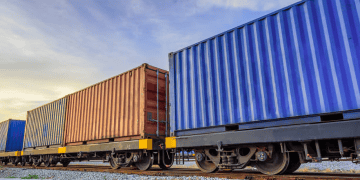Rail transportation has emerged as a highly efficient and environmentally sustainable alternative to road freight, offering substantial ecological benefits. By substantially reducing carbon emissions, rail transport aligns with broader sustainability objectives while enhancing logistical efficacy. A notable instance of this transition is the transport of gypsum by EP Logistics International (EPLI), which commenced in 2023. The company transitioned from utilizing trucks to rail for the transportation of gypsum from the Czech Republic to Germany, a change that has significantly diminished CO2 emissions and replaced 66 trucks per journey.
This shift to rail also exemplifies the high capacity and operational efficiency associated with rail transport, as each train is capable of carrying 2,030 tons of gypsum. Such initiatives not only reduce environmental impact but also optimize supply chain operations. With rail transportation generating considerably less CO2—merely eight tons per shipment compared to trucks—companies are increasingly adopting this method as a sustainable solution that meets climate objectives while ensuring reliable freight delivery. The continued advancement of rail transport underscores its essential role in achieving long-term environmental and logistical ambitions.
Discover supply chain logistics news updates on The Supply Chain Report. Free international trade tools are available at ADAMftd.com.
#RailTransportation #SustainableFreight #EcoFriendlyLogistics #RailwayEfficiency #GreenLogistics #CarbonEmissionReduction #SupplyChainOptimization #EPLogisticsInternational #GypsumTransport #SustainableSolutions #EnvironmentalImpact #RailFreight #LogisticsInnovation #CO2Reduction #SustainableTransport
- Latest
- Trending















